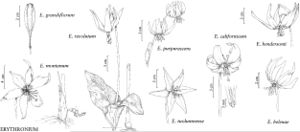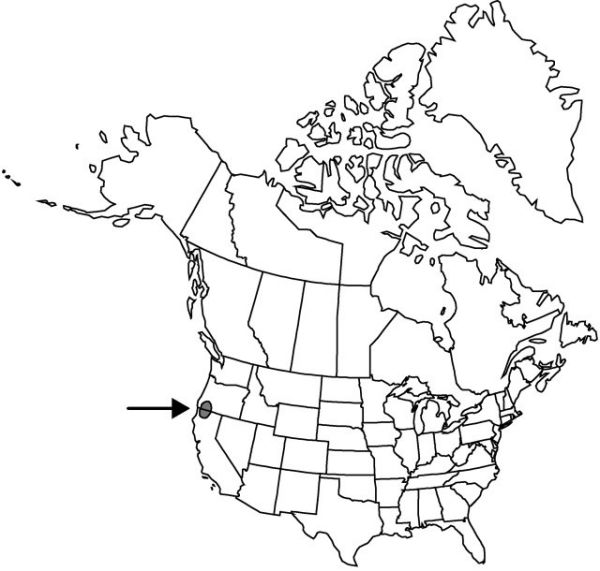Difference between revisions of "Erythronium hendersonii"
Proc. Amer. Acad. Arts 22: 479. 1887.
Common names: Henderson’s fawn-lily
IllustratedEndemic
imported>Volume Importer |
imported>Volume Importer |
||
| Line 53: | Line 53: | ||
|publication year=1887 | |publication year=1887 | ||
|special status=Illustrated;Endemic | |special status=Illustrated;Endemic | ||
| − | |source xml=https:// | + | |source xml=https://bitbucket.org/aafc-mbb/fna-data-curation/src/2e0870ddd59836b60bcf96646a41e87ea5a5943a/coarse_grained_fna_xml/V26/V26_265.xml |
|genus=Erythronium | |genus=Erythronium | ||
|species=Erythronium hendersonii | |species=Erythronium hendersonii | ||
Latest revision as of 21:14, 5 November 2020
Bulbs slender, 40–55 mm. Leaves 10–25 cm; blade mottled with irregular streaks of brown or white, oblong to ovate, margins entire to ± wavy. Scape reddish, 12–30 cm. Inflorescences 1–4-flowered. Flowers: tepals violet to pink, darker at tips, dark purple at base, broadly lanceolate, 18–35 mm, inner with small auricles at base; stamens 10–14 mm; filaments violet-purple, linear, slender, less than 0.8 mm wide; anthers pale brown to purple; style violet, 6–8 mm; stigma unlobed or with lobes shorter than 1 mm. Capsules obovoid, 2–4 cm. 2n = 24.
Phenology: Flowering spring (Mar–Apr).
Habitat: Dry woods and forest openings
Elevation: 300–1600 m
Discussion
Selected References
None.
Lower Taxa
None.

